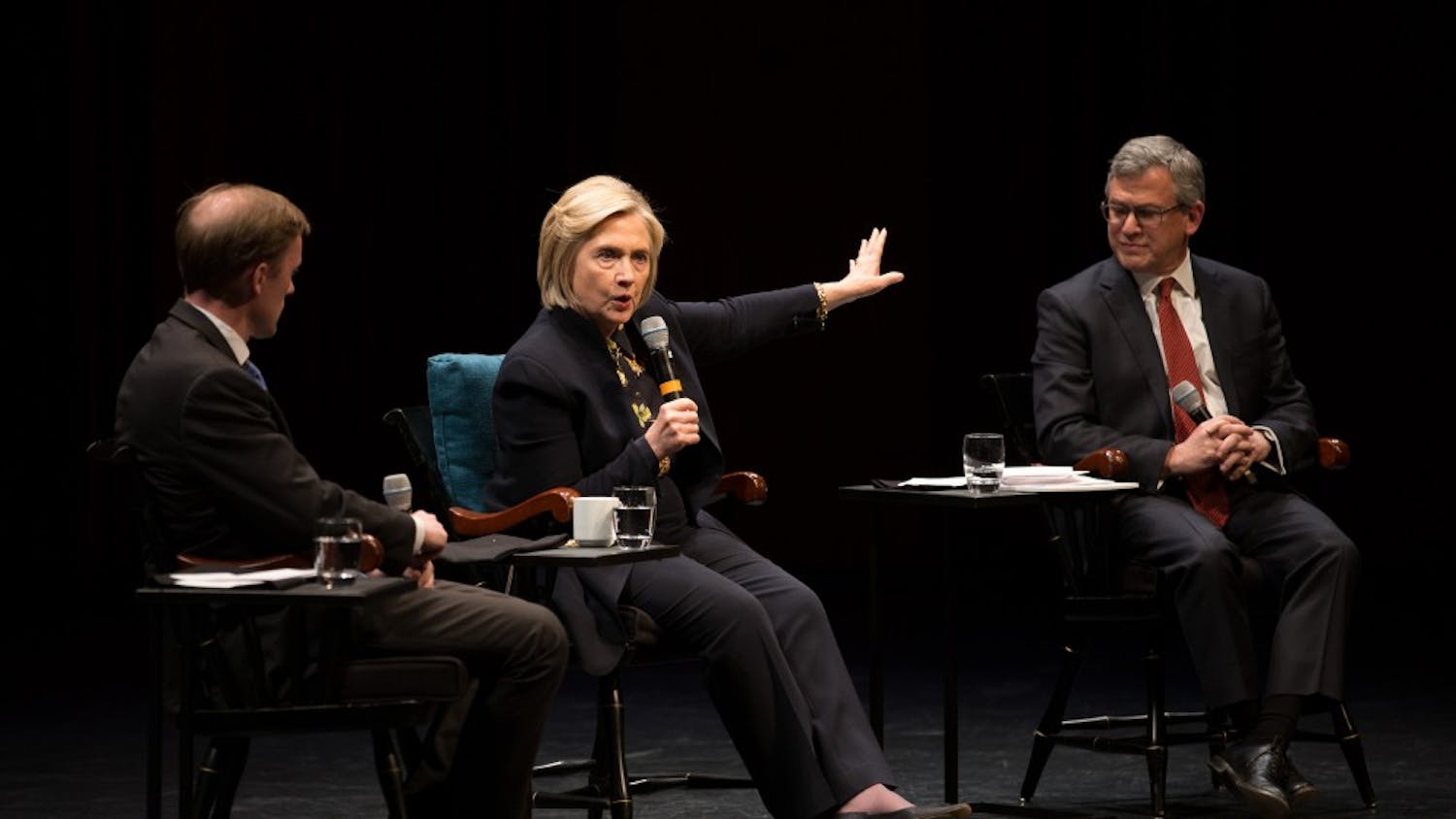During the 2018 midterm elections, a record-breaking 185 women ran for congressional seats, resulting in an historic 117 female members of Congress. The unprecedented surge of women’s congressional participation led many to call 2018 “The Year of the Woman.” The election of so many women into the top political offices of the United States electrified feminists across the country, and the 2020 election cycle has seen more women than ever before seeking the Democratic presidential nomination.
Our generation has seen women surpass men in attendance at American universities, voice their long-held concerns through the #MeToo movement, lead top businesses and pursue battles for gender equity. Yet these victories mask a largely invisible form of sexism that continues to limit professional and social opportunities for women: the continued prominence of double standards, often expressed in language, that devalue women’s accomplishments while maintaining men’s position as the standard-bearers of institutional power.
It’s no secret that words often carry different connotations, depending on the context and tone with which those words are delivered. A 2017 study by Pew Research Center explored the diversity of meanings that a single word — like powerful, intense, compassionate or strong — can suggest. Though respondents used those words to describe both positive and negative traits, the words’ implications, when applied to males and females, differed radically. For example, the Pew study found that Americans were much more likely to use “powerful” to describe men in a positive way (67 percent positive) than women (92 percent negative). The huge gender discrepancy in Americans’ perceptions of the term “powerful” reveals a broader truth about the way gender so drastically impacts the value judgment we place upon others: We often praise men for the very same actions or traits for which women are widely criticized.
The widespread tendency in American culture to condone in men that which is discouraged in women continues to shape women’s access to equal opportunities — both in and out of the workplace. Consider the word “bossy.” The term itself is fraught with societal expectations for the “type” of woman that makes a desirable colleague: amicable, docile and polite, but never too assertive. One could hardly imagine men being held to such a standard. What’s even more shocking is that words with similar connotations — but different value judgments — are often used to describe men in the workplace. Positive words like ambitious, confident and competent all frequently translate to little more than “bossy”; but when assigned to female colleagues, those traits are given a negative spin.
Though this difference may seem inconsequential, it has painfully tangible consequences: Women’s lives and careers depend on equitable opportunities for social and occupational advancement, all of which depends on the perception of colleagues and supervisors. Decisions concerning promotions, hiring, firing and pay are often left to subjective assessments such as a woman’s ability to “act as a team player” or “relate well to customers.” And those are assessments that often operate according to our different expectations for women and men.
Outside the workplace, the expectations embodied by our double standards in language use are just as harmful. Whether searching for a partner, mingling at a party or just walking down the street, it isn’t uncommon to hear value judgments placed differently upon men and women by way of language. While these comments are often offhand, said jokingly and quickly forgotten, they are always there — cultivating and maintaining the damaging stereotypes that persist for generations. Though these words have changed across time, adopting trendy references like “she is so extra” in place of more dated terms, the expectation that women must fit a certain persona has transcended time via language. To eschew these expectations as a woman is to risk being labeled “temperamental,” “opportunistic” or “selfish” while male colleagues waltz around the office praised as “passionate,” “ambitious” or “a real go-getter.”
The point of this article is not to give women a free pass on engaging in adverse behaviors, or to suggest that gender is always the basis for negative performance reviews or rejection at a cocktail party. Women, like men, have agency over themselves and are fully capable of doing a poor job. Rather, it is to recognize a consistent and widespread double standard in language use that continues to reinforce antiquated stereotypes concerning the expectations that our society places on women.
At Dartmouth, an institution that operated for nearly 200 years as almost exclusively a place for wealthy white men, it is particularly important for us to stay mindful of the ways in which our use of language can perpetuate gender discrimination on campus. By thinking about our interactions and challenging our expectations for each other, we open up space for students of any gender the freedom to be themselves defined not by stereotypes, but by who they are. Language comprises the building blocks of our day-to-day interactions, so let’s think critically about the ways in which it may impact gender dynamics both on campus and off.


